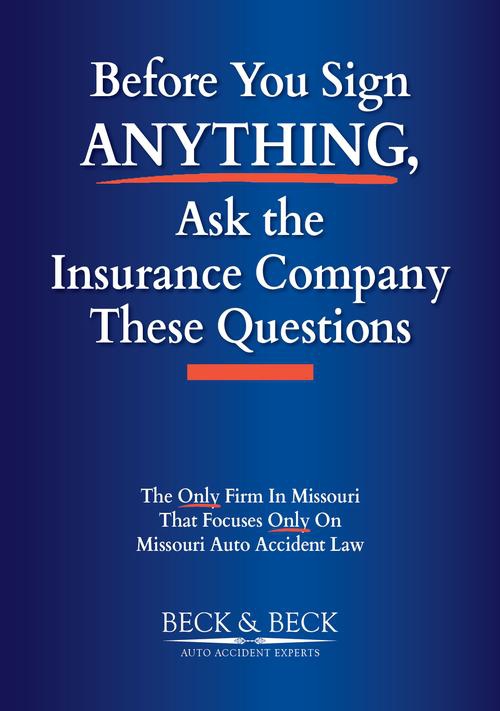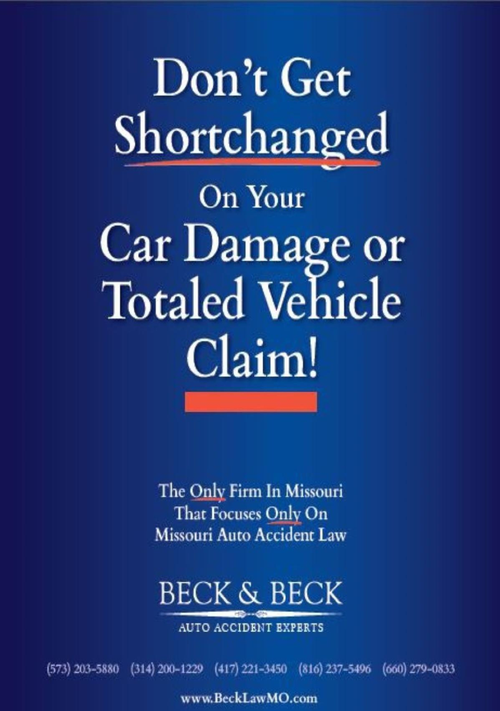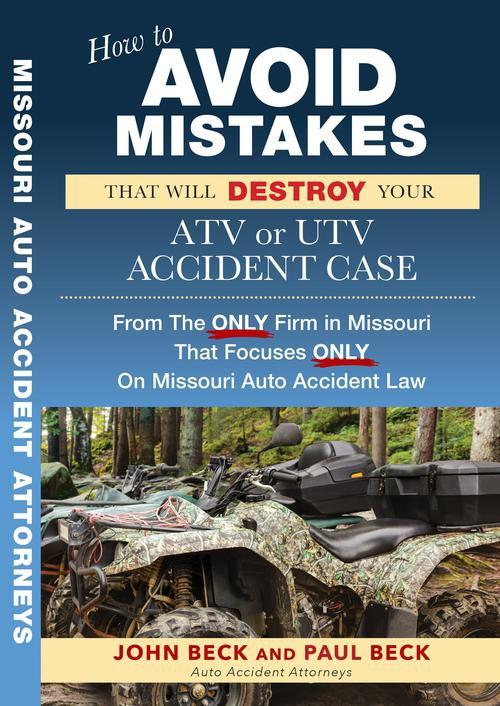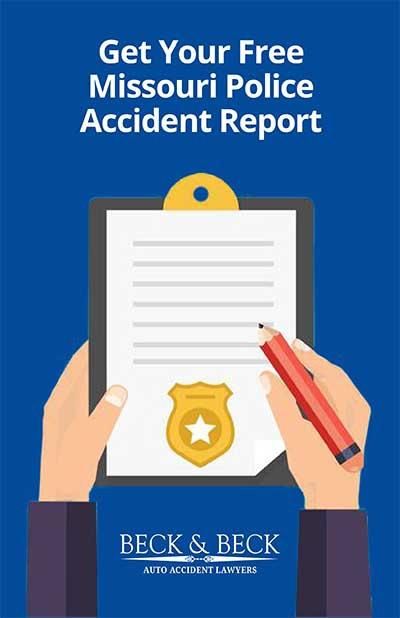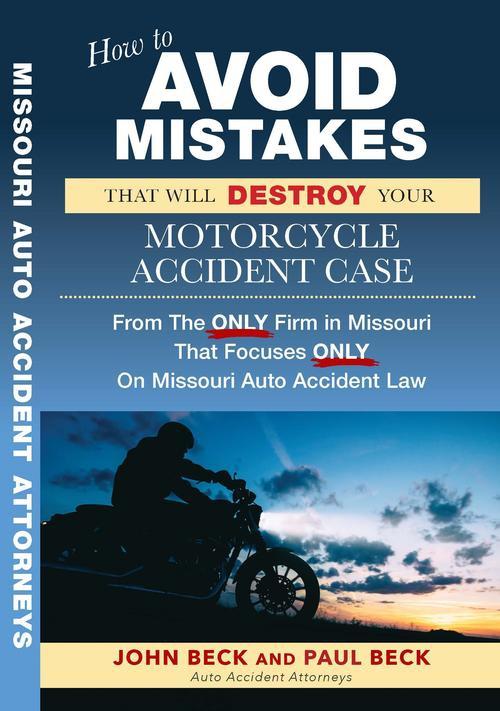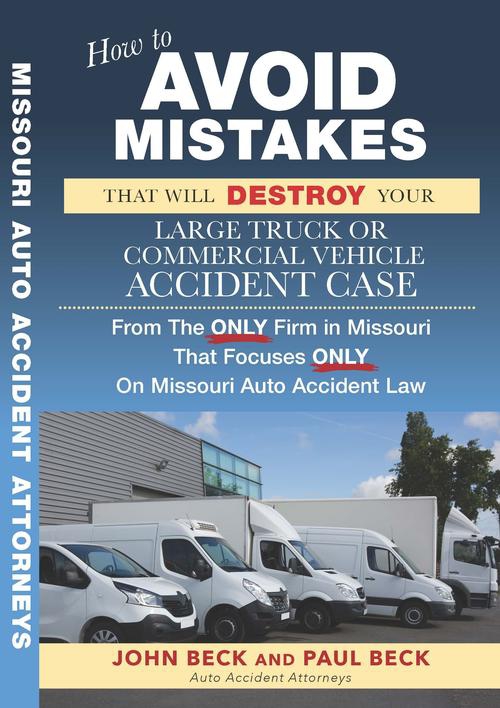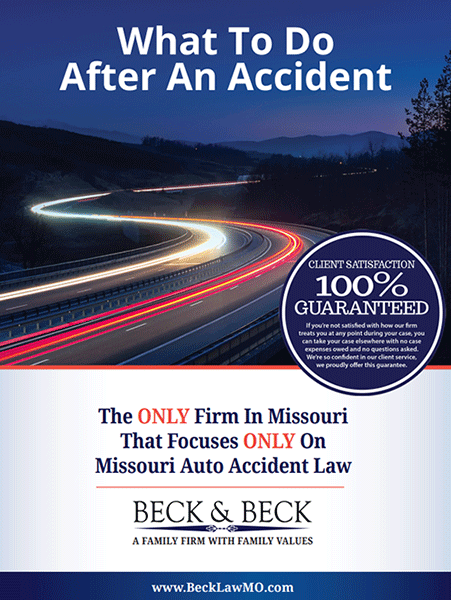When your car is totaled in a Missouri accident but you still owe money on your loan, you remain responsible for the remaining balance even after insurance pays out. Insurance companies only pay your vehicle’s actual cash value at the time of the crash, not what you owe on your loan.
This often leaves you with a gap between the insurance settlement and your loan balance that you must continue paying.
The situation becomes more complex when you consider Missouri’s at-fault insurance system, total loss thresholds, and how lienholders get paid from settlements.
You need to understand your rights when disputing low valuations, the role of gap insurance, and what steps to take immediately after an accident to protect both your claim and your loan obligations.
How Missouri At-Fault Rules Affect Your Car Loan Outcome
Missouri is an at-fault state. This means the driver who caused the accident is responsible for paying damages. If another driver caused your crash, their liability insurance should pay for your car’s damage up to their policy limits.
Missouri requires drivers to carry at least $25,000 in property damage coverage. However, this amount often isn’t enough to cover expensive vehicles or multiple damaged cars.
Missouri also follows pure comparative fault rules. You can still recover money even if you were partly to blame for the accident. Your payout gets reduced by whatever percentage of fault you share.
The key question is whether the insurance money will be enough to pay off your remaining loan balance.
Is Your Car a Total Loss Under Missouri’s 80 Percent Threshold?
Missouri declares a car “totaled” when repair costs exceed 80% of the vehicle’s value before the accident. This is called the total loss threshold. If your car meets this standard, the insurance company pays its actual cash value instead of repair costs.
Understanding this threshold matters because it determines whether you keep your damaged car or lose it completely. It also affects how much money you receive and whether you’ll still owe on your loan.
- Total loss: Repair costs are 80% or more of the car’s pre-accident value
- Repairable: Repair costs fall under the 80% threshold
- Salvage title: Required if you keep a totaled car in Missouri
How Do Insurers Calculate ACV Before Paying the Lienholder?
Actual Cash Value means what your car was worth right before the accident happened. Insurance companies use databases, comparable sales, mileage, and condition to determine this amount. They don’t care what you paid for the car or what you still owe on your loan.
Cars lose value quickly, especially in the first few years. This means your ACV is often much lower than your remaining loan balance. The gap between these two numbers creates the problem you’re facing.
Recent upgrades, excellent maintenance records, and low mileage can help increase your car’s ACV when you negotiate with the insurance company.
Who Gets the Insurance Check When You Still Owe on the Car?
When you have a car loan, your lender is called the lienholder. The lienholder has legal rights to your car until you pay off the loan completely. Because of this arrangement, insurance companies can’t just write you a check.
Instead, the settlement check gets made out to both you and your lienholder. This protects the lender’s financial interest in the vehicle. The lienholder gets paid first from this money, up to whatever you still owe on the loan.
If there’s money left over after paying off your loan, you get the remainder. If there isn’t enough money to cover the full loan balance, you still owe the difference.
Will Insurance Pay Off Your Auto Loan or Lease in Missouri?
Insurance companies only pay your car’s actual cash value, not your loan balance. This creates problems when you owe more than the car is worth. Being “upside down” or having “negative equity” in your loan is common with newer vehicles, long-term loans, or small down payments.
Missouri auto accident laws don’t require insurers to pay off your loan. They only have to pay fair market value for your damaged vehicle. The loan is a separate legal obligation that continues even after your car is gone.
For leased vehicles, the situation works similarly. The lease company receives the insurance payout, but you may still owe early termination fees, excess mileage charges, or other costs outlined in your lease agreement.
What If the Settlement Is Less Than Your Loan Balance?
You remain legally responsible for paying any remaining loan balance after insurance pays out. This unfortunate situation happens frequently, and there’s no way around it. Your loan agreement doesn’t disappear just because your car was totaled in an accident.
You have several options for handling the remaining debt:
- Continue regular payments: Keep making monthly payments to protect your credit score
- Contact your lender: Ask about payment plans or temporary forbearance options
- File gap insurance: Use this coverage if you purchased it with your loan
- Consider legal action: Explore suing an underinsured at-fault driver for additional damages
The worst thing you can do is ignore the remaining balance. This will damage your credit and could lead to legal problems with your lender.
How Does Gap Insurance Eliminate a Post-Accident Loan Balance?
Gap insurance is coverage that pays the difference between your car’s actual cash value and your remaining loan balance. You typically buy this protection from your auto dealer or insurance company when you first get your loan. It’s designed specifically for situations where your car is totaled and you owe more than it’s worth.
Gap insurance only covers the loan shortage, not other expenses. It won’t pay for your collision deductible, a down payment on a new car, or other costs related to replacing your vehicle.
Filing a gap insurance claim requires coordination between your primary auto insurer and your gap coverage provider. The process usually takes a few weeks after your main claim settles.
Can You Dispute a Low ACV and Increase the Payout?
You have the right to challenge any insurance company’s valuation of your vehicle. If their offer seems too low, don’t accept it without fighting back. Insurance companies often use automated systems that don’t account for your car’s specific condition or local market values.
To build a strong case for higher value, you need solid evidence:
| Evidence Type | How It Helps Your Case |
| Recent sales of similar vehicles | Shows current market value in your area |
| Maintenance records | Proves excellent condition and care |
| Upgrade receipts | Adds value for new tires, stereo, or other improvements |
| Independent appraisal | Provides professional third-party valuation |
Missouri allows you to invoke your policy’s appraisal clause if negotiations fail. This forces both sides to hire independent appraisers to determine fair value.
Do You Keep Making Loan Payments While the Claim Is Pending?
Yes, you must continue making all scheduled loan payments during your insurance claim. Your loan agreement is completely separate from your insurance claim. Missing payments will result in late fees, credit damage, and potential default on your loan.
Contact your lender immediately after the accident to explain the situation. Some lenders offer temporary forbearance or modified payment plans while you wait for your claim to resolve. However, don’t assume they’ll automatically give you a break.
Late payments get reported to credit bureaus regardless of your circumstances. Protecting your credit score should be a priority while you deal with the insurance process.
What If Your Car Is Repairable But You Still Owe on the Loan?
When your car isn’t totaled, the at-fault driver’s insurance pays for repairs and you continue making regular loan payments. This seems straightforward, but there’s a hidden problem. Your repaired car is now worth less than before the accident, even with perfect repairs.
This loss in value is called diminished value. It happens because potential buyers see accident history as a negative, regardless of repair quality. You can file a separate claim to recover this financial loss.
Diminished value claims require documentation and often expert appraisal. You can only pursue this against the at-fault driver’s insurance, not your own collision coverage.
Can You Keep a Totaled Car and What Happens to the Title?
Missouri allows you to keep your totaled vehicle, but the insurance company deducts its salvage value from your settlement. Your car then gets a salvage title, which shows it was declared a total loss by an insurance company.
Before you can legally drive the car again, it must pass a state safety inspection after repairs. The salvage title stays with the vehicle permanently, significantly reducing its resale value.
For most people with outstanding loans, keeping a totaled car isn’t financially practical. The reduced settlement combined with ongoing loan payments usually doesn’t make sense.
Can You Recover Diminished Value if the Car Is Repaired?
Missouri recognizes diminished value claims against at-fault drivers’ insurance companies. Diminished value is the reduction in your car’s market value simply because it has accident history. Even perfect repairs can’t eliminate this stigma among potential buyers.
Similarly, victims with serious injuries face lasting impacts that go beyond immediate medical treatment.
You cannot file diminished value claims under your own collision coverage. These claims are separate from your property damage settlement and require additional documentation. Professional appraisal often helps prove the actual dollar amount of value loss.
Diminished value claims work best for newer, more expensive vehicles where the loss is substantial enough to justify the effort and cost of proving it.
What If the At-Fault Driver Is Uninsured or Has Low Limits?
When the at-fault driver has no insurance or insufficient coverage, you have limited options. A Missouri uninsured driver accident lawyer can help you explore alternatives like uninsured motorist coverage or personal lawsuits.
Missouri requires uninsured motorist coverage with minimum $25,000 property damage limits, but you must specifically purchase this protection. Many people don’t realize they need to add this coverage separately.
Your collision coverage can pay for your totaled car if the at-fault driver can’t. You’ll owe your deductible, but at least you’ll get some money for your vehicle. You can also sue the at-fault driver personally, but collecting money from someone without insurance is often impossible.
Missouri’s “No Pay, No Play” law prevents uninsured drivers from recovering certain damages. This doesn’t affect you if you have proper insurance, but it’s another reason to maintain adequate coverage.
What Should You Do in the First 72 Hours to Protect Your Loan and Claim?
The actions you take immediately after an accident can make or break your financial recovery. Evidence disappears quickly, and insurance companies start investigating right away. You need to protect both your legal rights and your financial interests from the beginning.
Your immediate priorities should focus on documentation and notification. This evidence becomes especially critical if the other driver flees, creating a hit and run situation where witness statements and scene photos may be your only proof.
- Report the accident to police and get the report number
- Photograph all vehicle damage and the accident scene
- Notify your insurance company about the crash
- Call your lienholder to report the accident and pending claim
- Avoid giving recorded statements without legal advice
What Documents Help Prove a Higher ACV?
Gather evidence that shows your car’s true value before accepting any settlement offer. Recent maintenance receipts prove you took good care of the vehicle. Invoices for upgrades like new tires, brakes, or stereo systems add value beyond the base model.
Photos showing your car’s excellent condition before the accident help counter insurance company arguments about wear and tear. Online listings for similar vehicles in your area provide market value comparisons.
How Do You Minimize Storage and Towing Charges That Cut Into ACV?
Storage fees accumulate daily and get deducted from your final settlement. Move your car to your preferred repair shop as quickly as possible to stop these charges. Always document towing and storage bills you receive.
Some insurance policies cover reasonable towing and storage costs. Check with your adjuster about what’s covered and what limits apply to these expenses.
What Missouri Deadlines Apply to Property and Injury Claims?
Missouri gives you five years from the accident date to file a lawsuit for property damage or personal injury. This statute of limitations deadline is absolute. If you miss it, you lose your right to seek compensation through the courts forever.
While five years seems like plenty of time, evidence disappears and witnesses forget details quickly. This is particularly important in cases involving catastrophic injuries where medical records and accident reconstruction may be crucial to proving damages.
Certain situations have shorter deadlines, especially claims against government entities. Don’t wait to get legal help from our experienced St. Louis auto accident attorneys if your case involves complex liability or coverage issues.
Don’t Wait – Protect Your Rights Now
Dealing with a totaled car and outstanding loan creates serious financial stress. Insurance companies know you’re vulnerable and often take advantage of this situation. Beck & Beck Missouri Car Accident Lawyers levels the playing field and protect your interests during negotiations.
At Beck & Beck Missouri Car Accident Lawyers, we’re the only firm in Missouri that focuses exclusively on auto accident cases. We understand exactly how insurance companies operate and what tactics they use to minimize payouts.
With decades of experience handling auto accident cases, we know how to fight back and protect your rights against insurance companies.
We handle all insurance negotiations and protect you from making costly mistakes. You pay no fees unless we win your case, so there’s no risk in getting the help you need. We’re here to answer your questions and explain your options whenever you need assistance.
Contact us today to protect your rights and let our family help your family.
FAQs: Car Loans After Missouri Accidents
Do I Continue Making Payments While My Claim Is Being Processed?
Yes, you must continue making all scheduled loan payments during your insurance claim to avoid late fees, default, and credit damage.
Will the Settlement Check Be Made Out to Me or My Lender?
Insurance companies issue settlement checks jointly to you and your lienholder, with the lender getting paid first up to your remaining loan balance.
How Long Does Gap Insurance Take to Process and Who Files the Claim?
Gap insurance claims are usually processed after your primary insurance settles, and you are generally responsible for filing the claim with your gap insurance provider.
Can I Purchase Another Vehicle Before My Claim Settles?
Yes, you can buy another car before your claim finishes, but you’ll need to qualify for a new loan while still owing money on the damaged vehicle.
Does Gap Insurance Cover Negative Equity Rolled Into My Current Loan?
Gap insurance may cover negative equity from a previous loan that was rolled into your current financing, but check your specific policy as some exclude this coverage.
Will Missing Payments During My Claim Damage My Credit Score?
Yes, any missed payment gets reported to credit bureaus regardless of your accident claim, so continue payments or immediately contact your lender for assistance options.
Can I Keep My Totaled Car and What Are the Title Requirements?
You can keep a totaled car in Missouri, but insurance deducts salvage value from your payout and you must obtain a salvage title before legally driving it again.
What Happens If the At-Fault Driver Has No Insurance?
Your uninsured motorist property damage coverage or collision coverage can pay for your totaled car, though you’ll owe your deductible with collision coverage.

